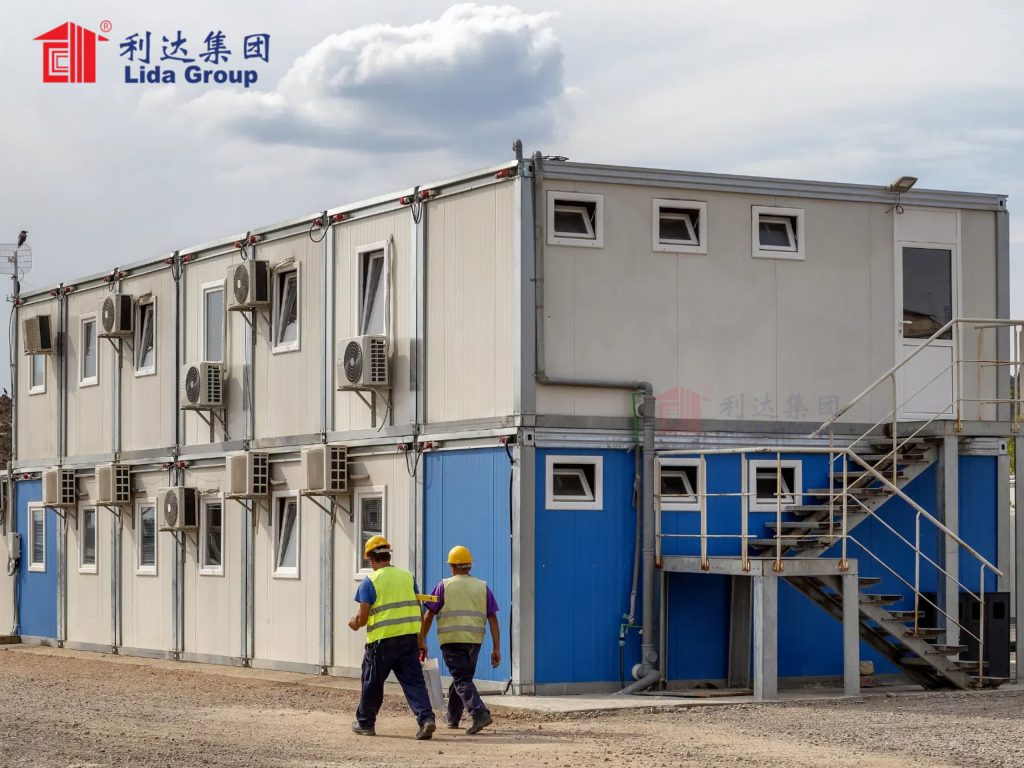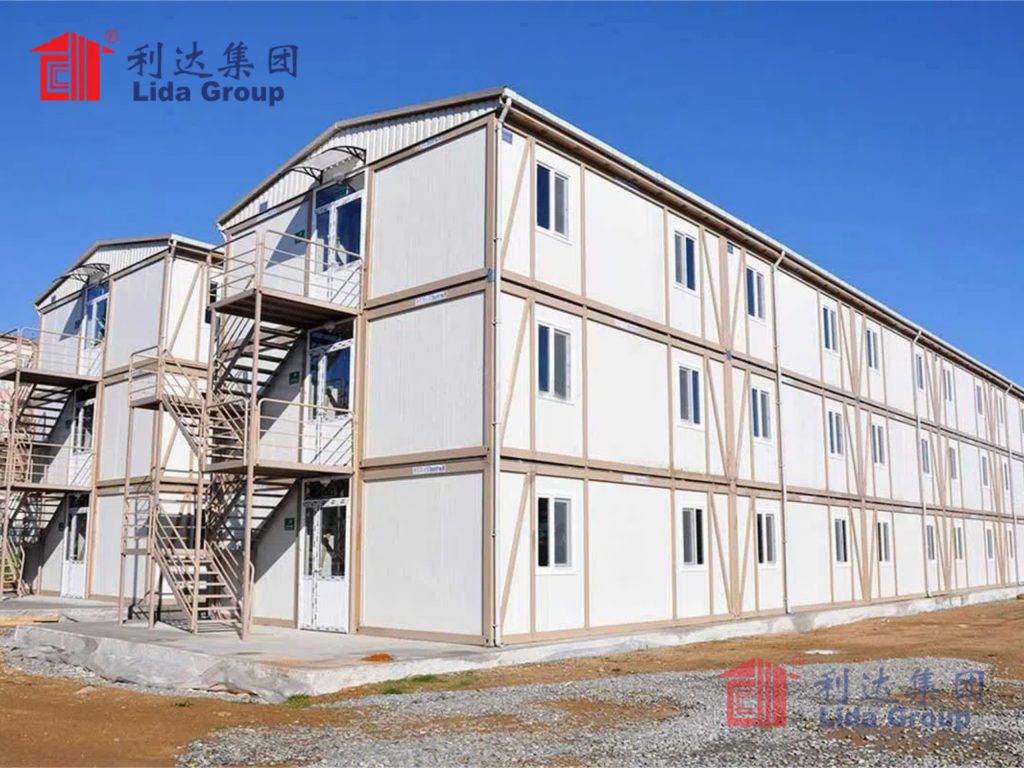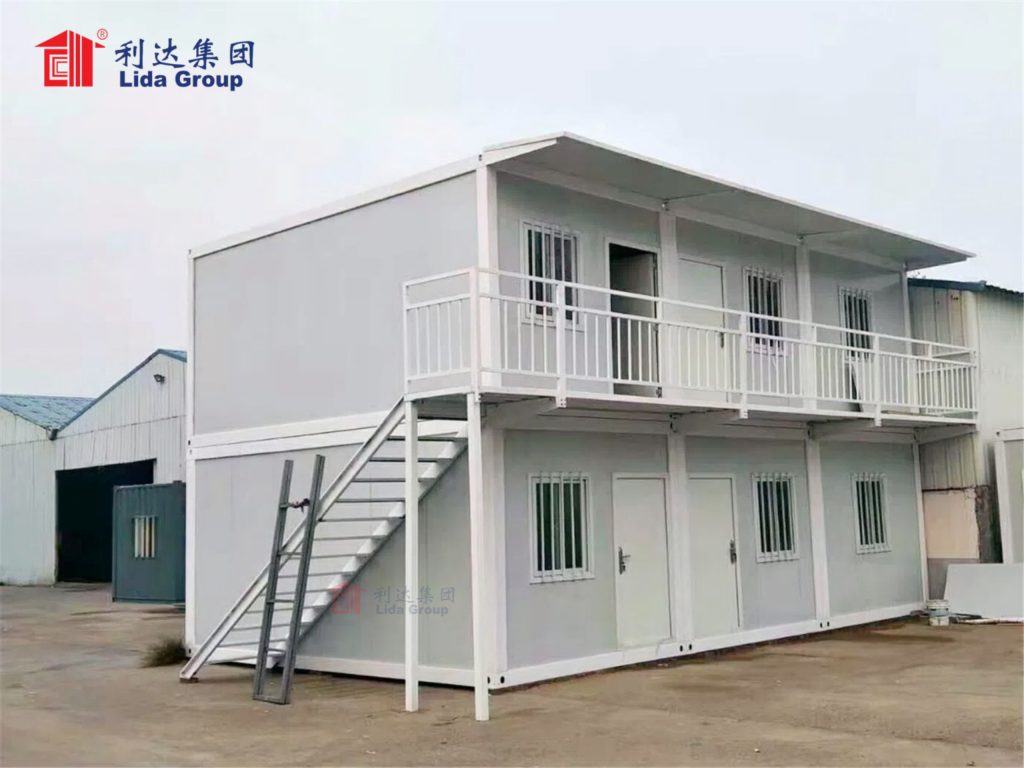Mining Contractors Adopt Mobile Camps for Fly-In Workers
Providing adequate accommodations for rotational fly-in fly-out (FIFO) workforces serving remote mining operations presents complex operational and financial challenges. As mines expand into more isolated areas lacking permanent settlements, traditional building construction or importation of modular structures drive up costs and logistical difficulties. Seeking affordable yet functional options, leading mining contractors have now begun appointing engineered accommodations specialist Lida Group to deliver mobile camp villages assembled within standardized shipping containers.
Accommodating FIFO Mining Workflows
Around the world, mining companies rely on specialist contractors deploying specialized rotational workforces to extraction sites via dedicated air transport infrastructure. Referred to as FIFO workers, they fly to remote project areas, lodge in on-site accommodation facilities for work rotations typically 2-4 weeks in duration, then return home for equal breaks. Well-designed accommodations are critical for worker recruitment, productivity and retention in isolating conditions away from families for extended periods.
Traditionally, purpose-built mine villages or imported modular complexes housed thousands of FIFO staff over mine lifecycles. However, constant workforce shifting drives amortized capital costs higher. Construction tie-ups also delay production ramp-ups. Where mines extend into new frontier zones precluding permanent townships, unconventional solutions that offer superior mobility, lower initial costs and faster delivery schedules hold clear project advantages.

Container-Based Mobile Camp Concept
Leveraging decades of mining accommodation expertise, Lida Group developed an innovative integrated mobile camp model assembling standardized optimized living quarters within refurbished shipping containers. As structural building frames, containers maintain inherent advantages of prefabrication, strength, modularity and cost-effectiveness versus ground-up construction.
Once on-site, compact containerized room modules easily interconnect via prepared floor pads to rapidly form insulated dormitory blocks, recreation halls, cafeterias and laundries. Integration of mechanical, electrical and plumbing systems simplifies utility links for camps supporting thousands. Self-contained power-water-sewage units plus rapid assembly slashes setup timelines. Completed minesite villages can be wholly transported elsewhere as operations shift, eliminating long-term investments while ensuring continuous worker housing.
Model Commercialization
Impressed with concept efficiencies, leading miners have appointed Lida Group preferred accommodation solutions provider for major upcoming FIFO projects. Commercial arrangements involve initial consultation defining housing capacities aligned with optimized mine ramp-up timelines. Standardized “plug-and-play” container modules are then manufactured off-site to high specifications. Factory-testing verifies structural integrity and technical systems functionality prior on-site delivery.
Qualified Lida engineers next construct robust durablized floor pads serving as foundations within client-selected minesite perimeters. Containerized accommodation room modules – outfitted with insulated panels, fittings and furnishings – are rapidly interconnected across pads according to masterplans. Mechanical-electrical-plumbing connections at each junction ready rooms for inhabitants.
Camp setup and testing under oversight is typically complete within 4-6 weeks versus conventional 9-12 month builds. Trials verify design compliance with miners’ accommodation standards before workforce handover. Continued Lida support maintains facilities per service agreements across projected mine lifecycles or until ramp-down requiring full camp relocation.

Model Performance & Evolution
Early commercial implementations have demonstrated design, construction and operational advantages of mobile camp villages over traditional permanent options. Contractors report reduced upfront accommodation-tied capital bills permitting faster project green-lighting. Miners value streamlined ramp-up timelines maximizing production uptime.
Container module standardization simplifies replication for workforce scaling. Full housing relocation achieved within weeks after mine life completions or production adjustments, contrasting legacies of deserted townsites from conventional projects. Feedback has fueled ongoing innovations like specialized recreation zones, workshop-storage modules, medical facilities plus renewable energy-water capture infrastructure upgrades.
Field Performance Monitoring
In cooperation with clients, rigorous post-occupancy assessments track model performance, innovations potential and lifecycle efficiencies. User experience surveys quantify satisfaction with comfort, security, amenity access. Subject matter experts perform routine walkthroughs flagging any maintenance needs. Digital sensor networks unobtrusively log structural integrity, indoor air quality, energy consumption for benchmarking against predictions.
Extreme weather vulnerability testing under controlled conditions supplements field exposure resilience observations over seasons. Capital expenditure tracking against schedules factors unplanned costs potentially reducing with design familiarization. Waste generation audits inform recycling optimization. Comprehensive findings guide value engineering and upgrades sustaining housing competitiveness across evolving operational demands.

Sustainability & Legacy Considerations
Lida integrates sustainability throughout model design, construction and siting alongside affordability and mobility. Modularization permits component reusability post-project supporting circular economy principles. Strict material selections emphasize non-toxicity, recyclability and emissions controls. Energy self-sufficiency upgrades presently in pilot programs could decrease mines’ carbon footprints over decades.
Progressive rehabilitation and handover plans help integrate retired camps into permanent regional communities where feasible. Donations facilitate amenities conversions for schools, clinics, administration buildings serving lasting regional needs. Overall, the container camp model both expands mining frontiers through optimized FIFO housing while enabling more sustainable, socially-conscious project legacies.
Conclusion
Extractive projects spanning remote wilderness regions require continuous accommodation innovations supporting rotational workforces yet containing project expenditures. Leveraging containers as standardized building blocks for integrated mobile villages, Lida Group now offers mining contractors a commercially-proven solution overcoming constraints of conventional permanent constructions. Rapid setup schedules maximize production uptime. Post-occupancy optimization evolves designs for worker satisfaction and operational efficiency. Sustainability prioritization delivers enduring regional benefits post-closure. With demonstrated track record, container camps herald a new paradigm for affordable yet dignified FIFO accommodations worldwide.

Related news
-
Film productions source fully-serviced modular prefabricated camps for vast location crews from Lida Group's inventory including sandwich panel dormitories.
2024-10-31 10:37:55
-
Energy company outfits seasonal workforce village using Lida Group's relocatable prefabricated accommodations kitted with trailer-mounted insulated sandwich panel dormitories, mess halls and recreation units
2024-10-30 17:05:57
-
Researchers collaborate with Lida Group to develop portable living units combining modified cargo boxes with detachable composite building skins for remote outpost lodging.
2024-11-05 15:46:50
contact us
- Tel: +86-532-88966982
- Whatsapp: +86-13793209022
- E-mail: sales@lidajituan.com


